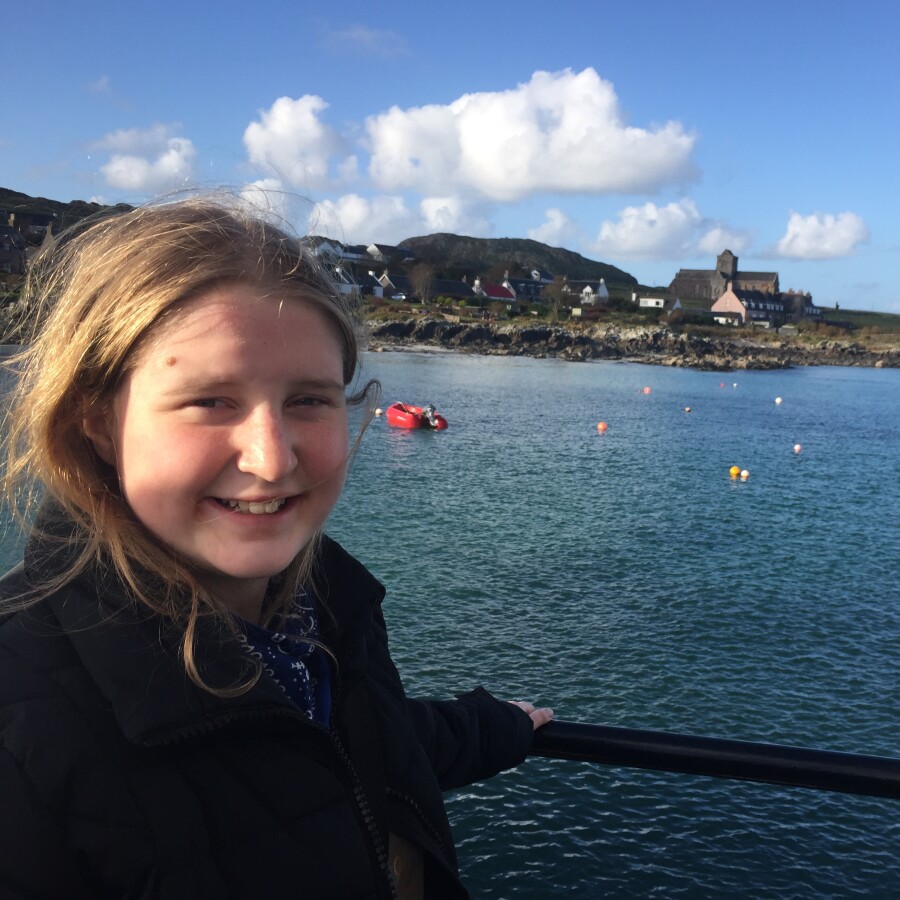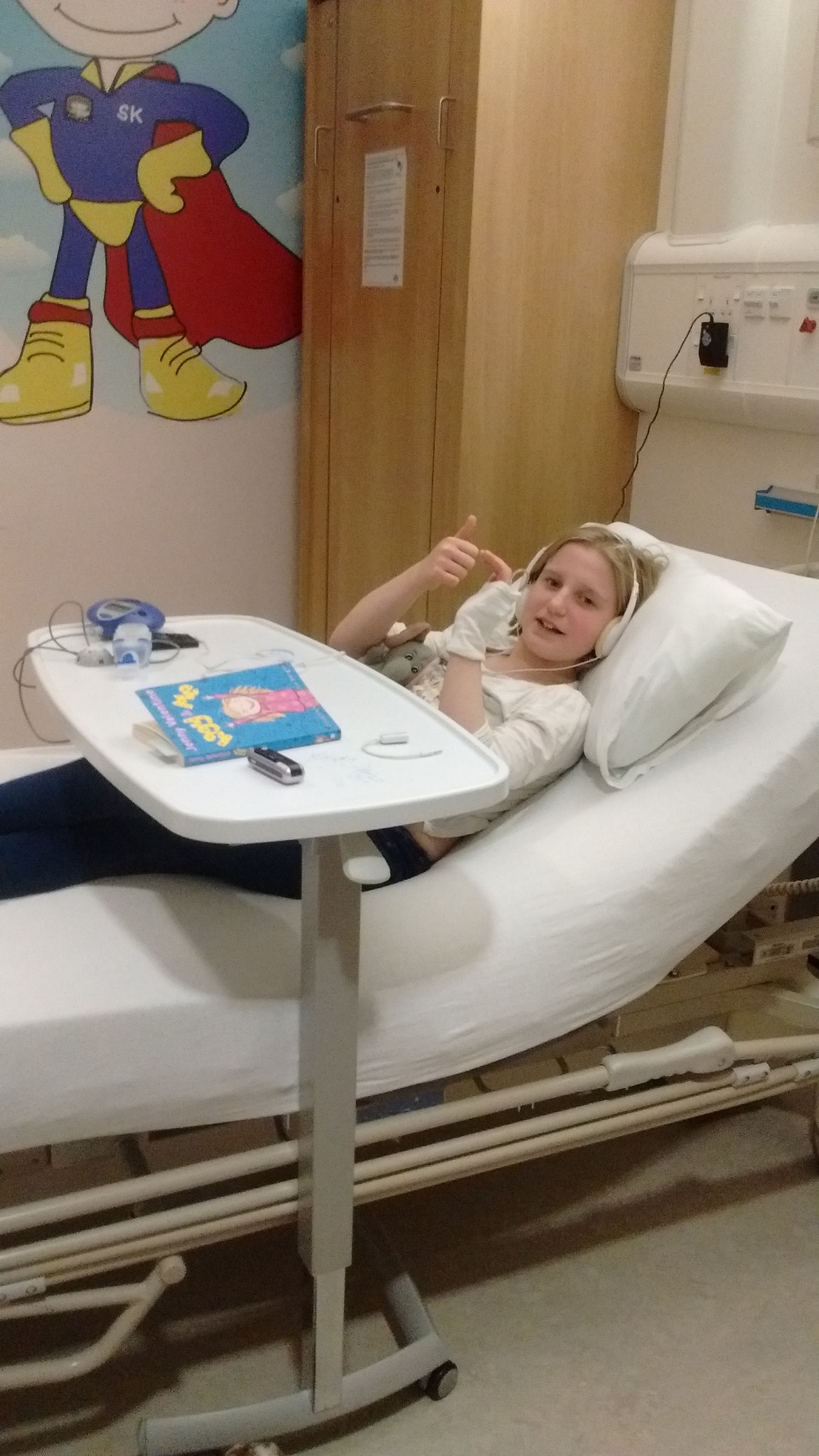Julia's Journey

Imagine the anxiety of seeing your child seriously ill in hospital and not even knowing the name of the condition affecting them.
That was once the reality for Julia’s mum Susi and dad Ewan, and continues to be the reality for parents every day whose children are born with or develop one of 7,500 known rare conditions.
Julia, 14, has Primary Ciliary Dyskinesia, or PCD. It affects the cilia, the microscopic hairs in the airways.
Susi says people who look after children with a rare condition must overcome a fear of the unknown – but help is available through the Office for Rare Conditions, an organisation funded by Glasgow Children’s Hospital Charity.
Susi said: “Julia was to be discharged within a couple of hours of being born, but they couldn’t do the hearing test as her breathing was so noisy. She was then in the neonatal unit for the first month of her life.
“It took until Julia was four-and-a-half to get diagnosed. The way her condition works, the symptoms are similar to Cystic Fibrosis. We had several tests for that and had to rule everything else out before the diagnosis.
“It was a long journey, and one of the things that comes up and unites all of us in the rare conditions community as such is this journey to diagnosis and not knowing where to start.
“As a family, it makes a huge difference to have a label where we can then look for support groups which provide advice on medical and practical matters.
“You can deal with what you know, the difficulty comes in not knowing.”
Now Julia is in her third year of high school, and returning to the classroom after lockdown brings challenges for children with rare conditions. Her school has been incredibly supportive, as has her older sister Mia.
“A huge part of managing Julia’s condition are her energy levels. You look at her and she looks well, but she struggles to walk over long distances. Sometimes you worry people will look at you as an overanxious mother and particularly with Covid-19 you see that people deal differently with the risk of respiratory infections. But Julia must do treatments and take medication daily to live with a chronic condition, which requires additional medication, when an infection leads to exacerbations.
“She usually took around seven or eight courses of oral antibiotics a year. Having PCD means that she has to do airway clearance at least twice daily with nebulising and physiotherapy to clear mucus and reduce the risk of multiple infections. If she struggles to shift them, she has to either inhale antibiotics or receive intravenous antibiotics in hospital. In the long run, these exacerbations take longer and longer to recover from and can lead to lung damage, making her in turn more susceptible to further infections.
“When Covid-19 first started in February 2020, we decided to Shield before the official Lockdown started. The following summer, Julia started at high school and it was important for her not to miss that. Mia had not yet started university so she tried to help, but with no vaccinations available and Covid numbers rising again, we decided to pull her out of school.
 Julia receiving intravenous antibiotics at the Royal Hospital for Children
Julia receiving intravenous antibiotics at the Royal Hospital for Children
“Now, since May 2020, she has only had to take one course of antibiotics despite being back in school for over a year.
“We started slowly with small classes and then into the full classroom. We still avoid things like assemblies with large groups of her peers, but the school are very understanding and supportive. We are glad that she enjoys going to school and has a nice circle of friends.”
Susi, originally from Rostock in north-eastern Germany, is a member of the Office for Rare Conditions’ Patient Advisory Group, in which parents and carers who look after children with rare conditions make recommendations on the decisions the Office takes.
The group also worked on the ‘Warm Hug’ letter, which is sent by the Office to every parent and carer of a child who is diagnosed with a rare condition in Scotland. Written by Rebecca, a parent of a child living with a rare condition, its main aim is to ensure the family do not feel alone after diagnosis and signposts various points of support.
“The Office for Rare Conditions helps to fill the gaps in those uncertain moments with things like the Warm Hug letter and various other initiatives. Our diagnosis was too far back to have received the letter, but I was very supportive when Rebecca came up with the idea and would have benefitted from something like that.
“The Patient Advisory Group is for us to volunteer our time to the Office for Rare Conditions for things like Rare Disease Day. We also offer our opinions on decisions they make and help with making surveys that are sent to parents.
“It’s important that parents from many different rare conditions are heard. All of us, together, can make a difference.”